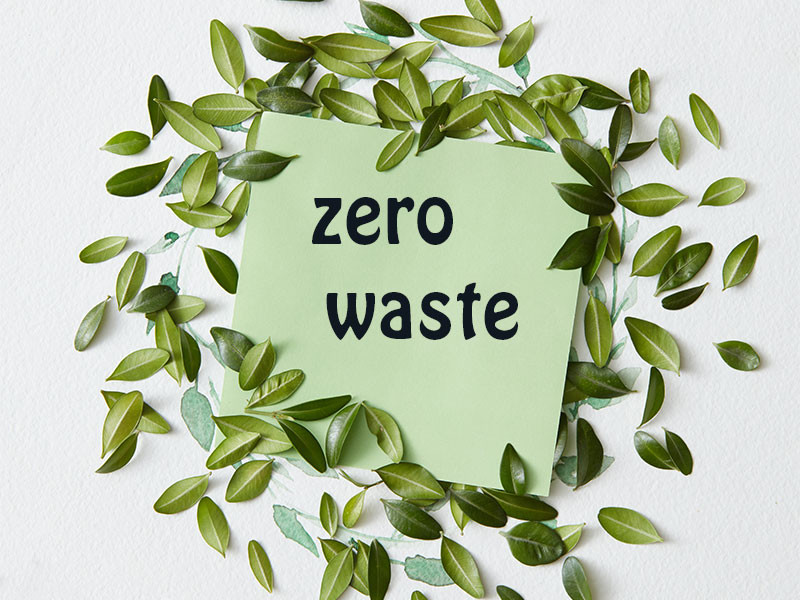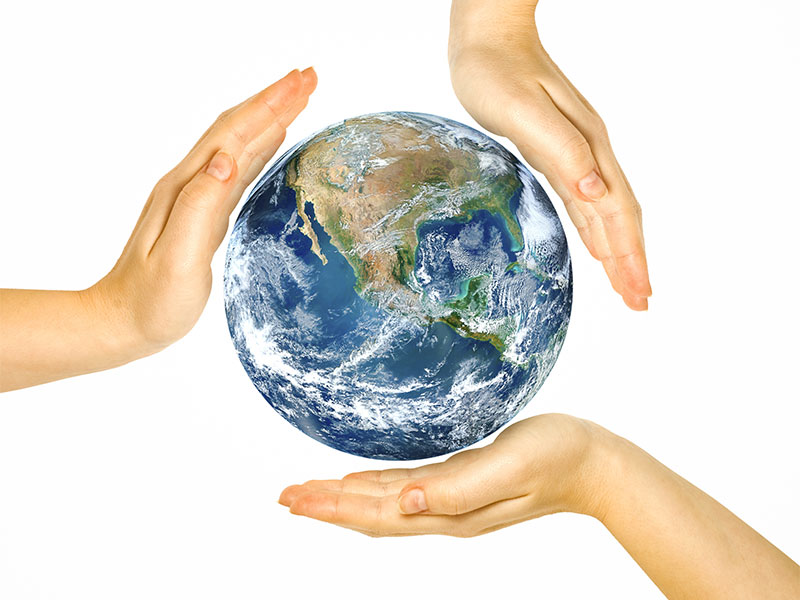Zero waste, a fashion or a necessity?

A campaign to avoid the use of plastic was launched this week. This basically means buying food that is not wrapped in this highly contaminating material.
Those of you who have tried to follow this plastic boycott will have realized that it's not as easy as it seems. Most products are packaged in this material and those which are not, such as fruit and vegetables, end up in plastic bags.
If we look around us, many of the products we use are made of or wrapped in plastic. What we don't see is the pile of waste that piles up somewhere hidden or in our seas. As the saying goes, "out of sight, out of mind".
We humans have a peculiarity, we do not act until the problem affects us directly. If our garden was chosen to be the plastic container of our street, we wouldn't like it so much, would we?
What does all this have to do with zero waste?
More and more people are becoming aware that our world is going down the drain, and that if we wait for the problem to affect us directly, we probably won't be able to do anything about it anymore.
So, some people began to follow a philosophy of life called "zero waste". This movement aims to reduce the waste we generate as much as possible so as not to throw more rubbish into the landfill.
Many will say that you already recycle, which obviously helps, but is not the solution. The ideal would be not to generate waste, or at least to reduce it as much as possible. You will probably say that this is an impossible mission and you might be right, but it is also true that many people who follow the "zero waste" philosophy do it.
A life based on zero waste.
This philosophy of life follows the rule of the five "Rs": Refuse, Reduce, Reuse, Recycle and Rot. Let's look at each of them in more detail:
1. Refuse.
That is, reject those products that are wrapped in plastic, or those that are disposable. This prevents waste generation and therefore less rubbish ends up in landfills.
Fruit and vegetables are bought at the market and in bulk rather than in packages. Plastic bags are replaced by cloth bags, which can be used as many times as you like. For products that cannot be put in bags, glass jars or metal containers can be used.
As for disposable products such as nappies or sanitary towels, there is already a reusable version on the market, in case you want to give it a try.
2. Reduce.
Another way not to send rubbish to the landfill is to buy only what is necessary. Our grandparents did it already, because they didn't have a lot of money and therefore, they only bought what was necessary. However, our generation has a bit more liquidity and that often makes us buy objects that end up forgotten in a drawer.
This requires a new approach to our consumption habits, which leads us to wonder if what we want to buy is actually essential.
3. Reuse.
The idea is to try to find a new use for that which, for whatever reason, we no longer want to keep, and this requires imagination and creativity. For example, a pair of trousers can be turned into a pair of shorts or a handbag.
Another concept to which we are not yet very used to, but which more and more people are practising, is to buy second-hand objects. It is another way of extending the use of an object.
4. Recycle.
It seems that recycling is the solution to waste management, but the reality is not as idyllic as it seems, as this process requires the use of a lot of energy, and many products, once recycled, end up in landfills. However, it is obvious that we have to recycle.
5. Rot.
This step focuses on the decomposition of organic products. In order to take advantage of this kind of waste, it is advisable to make compost and therefore, we'll get soil for our garden or for our plants.
Many of you may think it is very difficult to follow these guidelines, and you are probably right. In order to follow this philosophy of life you need a change of mentality and habits that we often do not want to make.
But perhaps, if we think that our existence on this wonderful planet is at stake, we will realize that maybe it's worth trying to make some changes in the way we act.

I leave you with an Indian prophecy:
“Only when the last tree has been cut down, the last river been poisoned and the last fish been caught, will we realize we cannot eat money”.
Comment





